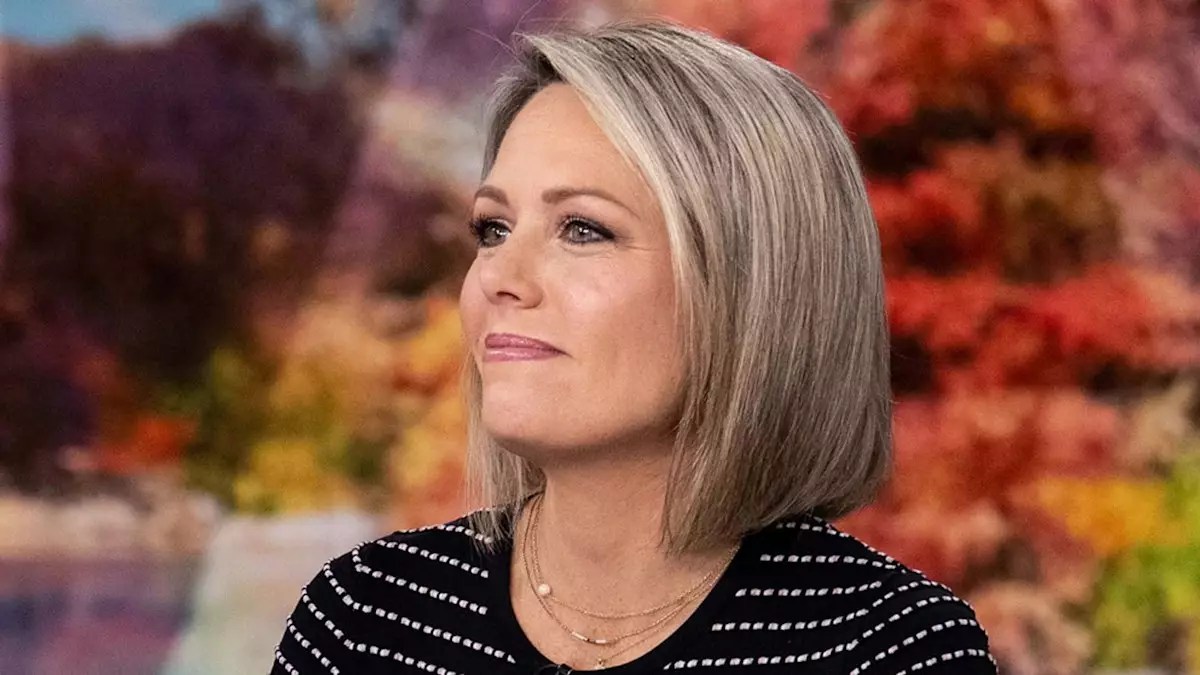Dylan Dreyer has emerged as a transformative figure in the advocacy for gluten-free options, especially following her son’s diagnosis of celiac disease. As a well-known television personality on NBC’s *Today Show*, she has utilized her platform to spotlight an issue that many families face: the glaring scarcity of gluten-free food options available in everyday venues. While the journey is undoubtedly personal, it echoes the struggles of numerous families navigating similar dietary restrictions, making her advocacy both timely and essential.
A Personal Journey Translated into Advocacy
Dylan’s journey began after her son Calvin’s diagnosis, which thrust the burden of navigating a gluten-filled world upon her family. The stark reality is that many people with celiac disease are left checking every restaurant’s menu, questioning whether grocery store aisles will yield safe options. Dylan’s commitment to sharing her family’s story resonates with many, elevating the conversation around gluten-free living and the importance of expanding food availability. It’s not just about what is on the plate; it’s about the ability to dine out without stress and enjoy life’s shared experiences like any other family. If that particular aspect of life seems to be elusive, it can significantly affect the quality of one’s family dynamic.
By openly discussing the constraints imposed by celiac disease, Dreyer humanizes the statistics. The glaring truth is that many restaurants and supermarkets have not fully grasped the importance of offering gluten-free options, treating celiac disease as more of a dietary nuisance than a genuine medical condition. Dylan’s revelations about her experiences shed light on a crucial need for change—a need for restaurants to prioritize training staff about gluten-free protocols and understand the serious implications of cross-contamination.
Promoting Awareness at Iconic Events
One recent monumental moment came during a Boston Red Sox game dedicated to Celiac Awareness Night, where the team made a concerted effort to provide gluten-free food options for guests. For families like Dreyer’s, attending events like baseball games should be about enjoyment and connection, not anxiety over safe eating. Dylan shared her joy about Calvin being able to partake in the game without the encumbrance of packed meals or relentless questioning about food safety. It was a small win for the Dreyer family, yet a powerful reminder of what inclusion should look like.
Events like this illustrate the potential impact of awareness while challenging other organizations to follow suit. By drawing attention to the lack of gluten-free options at major venues, Dylan is not merely advocating for herself and her family; she is pushing for systemic change that could benefit many. But advocacy requires collaboration—Dylan’s success is rooted in not only her passion but also in forming alliances with organizations that prioritize health and wellness.
Contrasting Experiences Across the Atlantic
Travel has become a significant source of insight for Dylan, particularly her experience in the United Kingdom, where she was surprised by the breadth of gluten-free products available. Her observations about the difference in quality and affordability of gluten-free products in the UK compared to the US are striking. The price disparity, especially regarding staple ingredients like gluten-free flour, forces one to question why, in a country where celiac disease is rampant, gluten-free options have not garnered the respect and demand they deserve. Dylan’s poignant comment on the affordability of Premier British brands like Waitrose serves as a clarion call for US supermarkets to step up their game in offering quality gluten-free products.
This raises questions about market dynamics and why gluten-free living is often treated as a premium lifestyle choice rather than a necessary one. The stark contrast appears to reflect differences in cultural perceptions toward dietary restrictions. In the US, there’s a tendency to view celiac disease as a challenge to be managed rather than a genuine health condition. Dylan’s candid commentary urges us to lift the stigma and promote gluten-free living as a norm rather than an exception.
Transformational Recipe Sharing and Community Building
Dylan has harnessed the power of social media to not only share her struggles but also provide solutions. By posting gluten-free recipes and engaging in cooking segments with Calvin, she creates a sense of community and belonging for others affected by similar dietary restrictions. These initiatives foster collective resilience, making it easier for families to adapt to a gluten-free lifestyle. Dylan’s passion indicates a profound understanding that food is not just sustenance; it is love, connection, and culture that can unite families—every meal shared should be a joyful occasion, not a stressful one.
Dylan Dreyer stands at the intersection of motherhood and activism, and her ongoing campaign for celiac awareness is commendable. Her advocacy has the potential to create ripples of change, making everyday life easier for countless families, and ultimately contributing to a healthier, more inclusive society. The time for gluten-free reform is now, and it takes voices like Dylan’s to inspire change at every level.


Leave a Reply